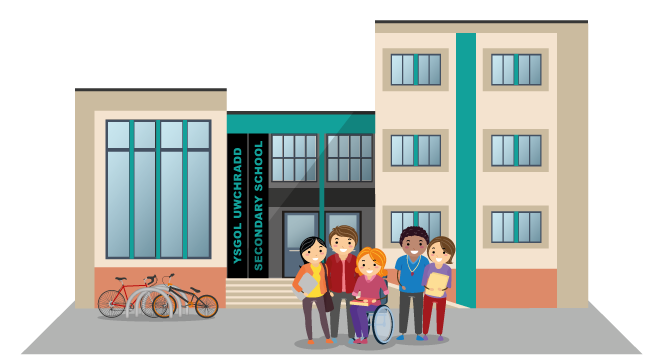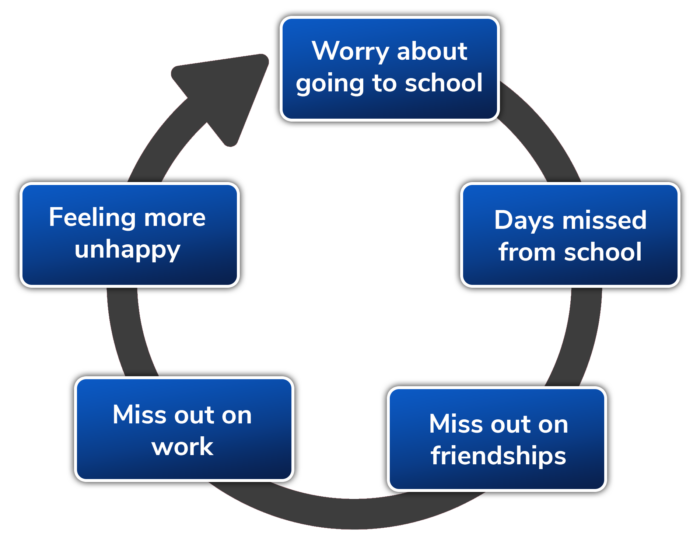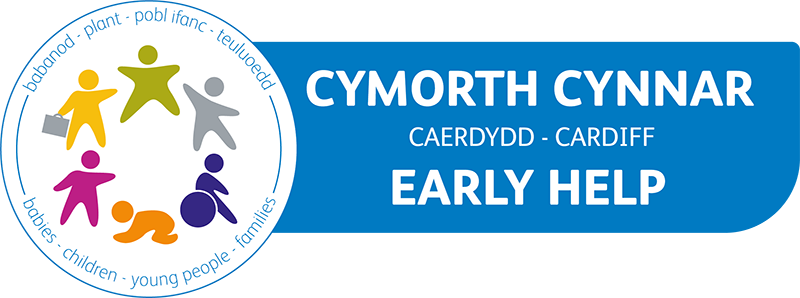
When you think about school, do you:
- feel worried,
- feel scared,
- struggle to sleep,
- feel ill or pretend to be ill,
- feel low,
- get a bad temper,
- worry about friendships, or
- feel unsure of yourself?
You are not on your own. It is normal to feel like this because of things that are happening in your home life or at school.
Some things at school that could make you feel this way:
- Problems with friendships.
- Bullying.
- Changing school.
- Feeling different to other people.
- Worrying about schoolwork.
- Worrying about your appearance.
- Not getting on with some teachers.
- Feeling anxious about exams and tests.
- Feeling pressure to achieve certain grades.
- Feeling like you are not good at some subjects.
- Worrying about getting changed for PE or games.
- Worrying about the noisy school environment.
Some things at home that could make you feel this way:
- Parents or carers arguing or splitting up.
- The death of someone important to you.
- A parent or carer who is ill.
- The birth of a new brother or sister.
- Difficulties getting to school.
- Members of your family feeling sad or depressed.
- New people moving into your home.
- Parents or carers not understanding your feelings.
Sometimes you may feel like staying at home is the best thing to do. But the more time you spend out of school, the more learning you will miss.
You will also miss out on seeing your friends. This can make keeping friendships more difficult.

It is important to talk to someone who can help you and make you feel happy in school again. This could be:
- your parents or carers,
- other family members,
- an adult in school, or
- your friends.
You can think about the things that are worrying you and write a list or draw them in order of most worrying to least worrying.
You could also try:
Relaxing your body
- Sit or lie somewhere quiet and comfortable.
- Stretch out your arms and make a fist, then relax.
- Push your legs out, then relax.
- Shut your eyes tight and pull a scrunched-up face, then relax.
Calm breathing
- Take a slow breath in through your nose for about 4 seconds.
- Hold it for 1 or 2 seconds.
- Let it out through your mouth for about 4 seconds.
- Repeat 5 to 10 times.
Physical exercise
Exercise increases your heart rate and releases endorphins which make you feel good.Choose an exercise you like and build your exercise around that.
Visualisation
- Close your eyes and take deep breaths.
- Think of your favourite place.
- Focus on that place and picture yourself there.
- What can you see? What can you smell? What can you feel?
Think balanced thoughts
If you find yourself thinking a negative thought, try thinking of a more balanced or positive thought instead. For example, a negative thought might be “I will fail my exam”. A more balanced or positive thought might be “If I work hard, I will do okay in my exam”.Try and do this every time you notice yourself thinking a negative thought.
It is important to find an adult at school that you trust and talk to them. Your school can work with you and your parents or carers to help you. They could do things like:
- help with your schoolwork,
- help with your friendships,
- find a safe space for you to go to, or
- adjust your timetable.
These can be written down in a plan so that you, your parents or carers, and the school know what has been agreed to help you.
Your school and parents or carers can support you to get back to school. There are some actions you can take:
- Think of things that will help you go back to school and plan this with your teachers and parents or carers.
- Keep in contact with your friends at school.
- Catch up on some of the work that you may have missed before you go back.
- Take little steps to get back into a routine.
